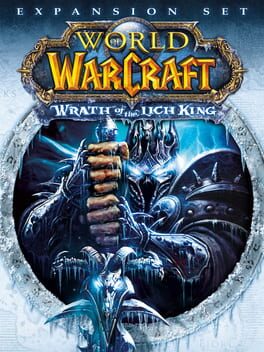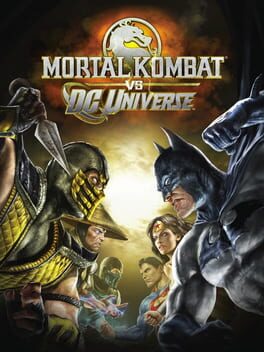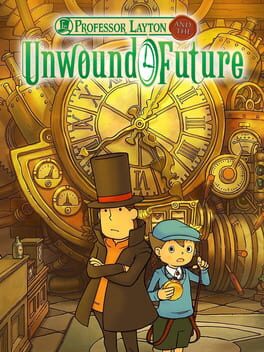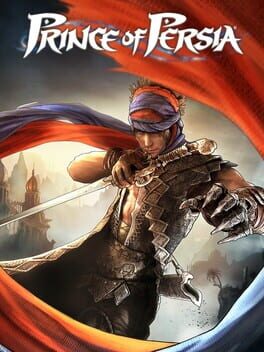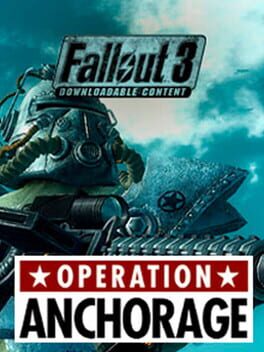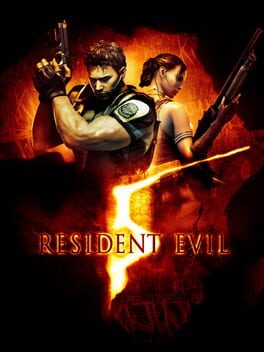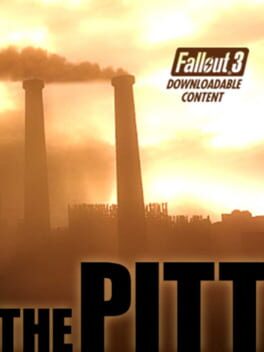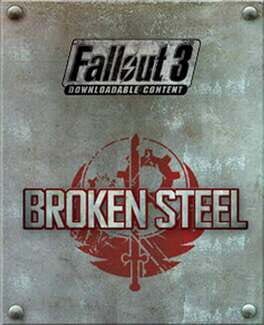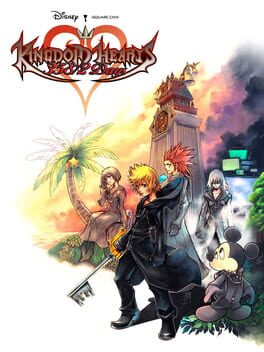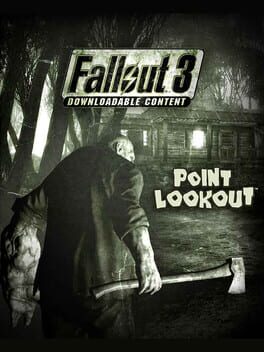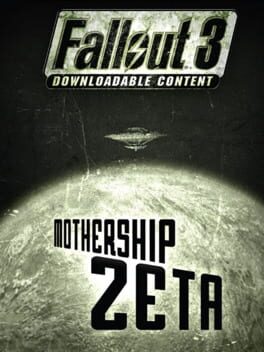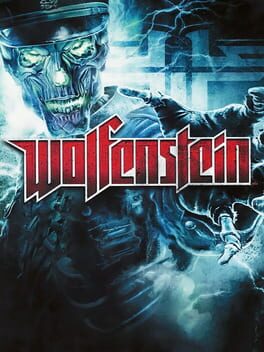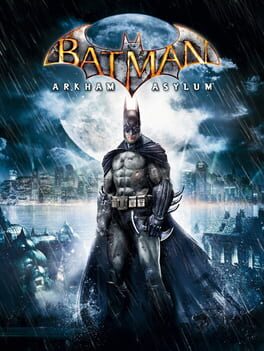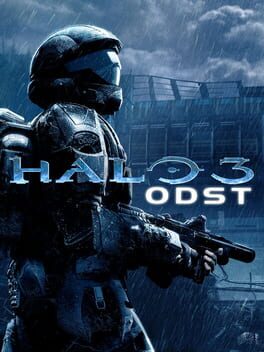nrc2223
Northrend slaps, full stop. It may not have the environmental diversity or incredible skyboxes of Outland, but the consistency of tone across the entire continent is pretty impressive when you consider how much content is available in that space. The overarching story ain't half bad either for an MMO expansion, feeling properly climactic for the end of a narrative started all the way back in Warcraft 3. The quality of the content and storytelling in Northrend is a bit more mixed, but there's still plenty of experiences I had in this expansion that hold a good amount of nostalgia for me. This was WoW's golden era, and it's hard not to see why.
"Let's make a riff on Marvel vs. Capcom but do it with Mortal Kombat and DC characters!"
"Great idea! I can't wait to see Batman and Superman get fatalitied, that'll be sick."
"Oh, you see, the rightsholders don't want us doing anything too graphic with the DC folks, so the fatalities have to go."
"Um...ok. Well, we can still try to put together a compelling story about these two conflicting universes and the ways their respective philosophies are parallel but distinctly opposed, right?"
"Nah, I'm thinking we do some multiverse shenanigans where no one dies and everyone is friends by the end."
"...so then where will the good parts of the game come in so this doesn't feel like a soulless cash-grab?"
"Good parts?"
"Great idea! I can't wait to see Batman and Superman get fatalitied, that'll be sick."
"Oh, you see, the rightsholders don't want us doing anything too graphic with the DC folks, so the fatalities have to go."
"Um...ok. Well, we can still try to put together a compelling story about these two conflicting universes and the ways their respective philosophies are parallel but distinctly opposed, right?"
"Nah, I'm thinking we do some multiverse shenanigans where no one dies and everyone is friends by the end."
"...so then where will the good parts of the game come in so this doesn't feel like a soulless cash-grab?"
"Good parts?"
I can't believe a puzzle game made me cry. Crazy how this collection of strung-together logic puzzles and mind games managed to garner a legitimate emotional reaction from me that I still think about to this day. Minor nitpick: how does the reveal for the true nature of the time-travel work logistically? Wouldn't the whole enterprise irreparably jeopardize the structural integrity of London forever? Also, how could they even AFFORD that? Takes me out of the game somewhat, but only enough to give me pause before sucking me right back in. Absolutely a top-tier DS game and one of my favorite puzzlers ever.
2008
Undervalued by the gaming community at large, although the obvious flaws do detract from the experience a bit. Combat is barely a factor here beyond the repetitive boss fights, and the omission of death mechanically does reduce the tension and stakes of play to a frustrating degree. The story is mostly uninteresting, with boring characters and bland plotting with no sense for pacing. Despite all those issues, I don't think there's been a game with such an distinctively flavored aesthetic. The storybook art style is front to back stunning, with every environment being vibrantly realized and full of remarkable details that amaze me even to this day. In addition, the adoption of the themes and aesthetics of Zoroastrianism is a one-of-a-kind choice in a game like this, and it certainly adds a flavor you won't find in many other blockbuster games of this scale. Perhaps its harder to love this game than admire it, but the admiration I have comes in spades.
Novel enough to be entertaining as a proof of concept, if not as an actual gameplay experience. It's a nice piece of writing on a macro level, giving the player a chance to see a patriotic, jingoistic version of a major conflict in the lore that hadn't been explored yet, but amusement from the satirical bent brings only goes so far when the rest of the experience is so wildly repetitive and flat. Props for allowing the player to convince the final boss to seppuku himself for honor, though - cute touch.
2009
Personally, I think this is the Resident Evil franchise's low point. RE 6 is a bad game, sure, but it's an entertainingly overblown bad game that you can't help but gawk at with all of the uniquely ill-advised ways it falls over itself. This is just bizarre in its tone, trying to balance the self-aware cheese of RE 4 with a misguided attempt at seriousness and failing nearly every step of the way. I won't wade into the nature of whether the choice to have a buff white man shoot a bunch of minorities indiscriminately for entertainment is a politically sound one, since it seems pretty obvious on face value that it isn't. I will give credit where it's due in that the last couple of levels manage to ramp up into the insane B-movie charm of RE 4 with Wesker using his evil superpowers and Chris punching boulders while running around in an active volcano. The rest of the experience is shockingly bland, though, lacking much in terms of character or even satisfying scenarios. I'd recommend watching a playthrough if you're desperate to know what happens in this entry - otherwise, skip it.
2009
Weirdly enough, I think this is the best-written content for Fallout 3. The Pitt is a fascinating setting that manages to develop its own distinct identity within the universe while still adding some new tidbits of lore to flesh out the east coast and the factions within it. I also have always loved a well-designed space that players can run around in to collect multiples of well-hidden collectables and get satisfying rewards from, so running around the titular Pitt is easily one of the best parts of Fallout 3 for me. Unfortunately, it does fall into the usual trappings of Bethesda games where some of the content beyond the core experience feels more like padding than substantial additions, i.e. the fight arena. Still, the conflict here is compellingly gray for a Bethesda game, forcing the player to decide whether they'd prefer to promote the continued enslavement of a population in order to end a deadly plague or to force a regime change that could theoretically accomplish the same goal without any guarantees for success or substantial social change within the environment. It may not be perfect, but at least it displays that Bethesda can aim for nuance sometimes and hit it more successfully than you'd expect.
Worthwhile only because it fixes the thematically fitting but experientially frustrating ending of the main game. Everything else here feels hastily cobbled together and disparate, as if Bethesda hadn't planned this content in advance but realized their decision to lock off exploring the Capitol Wasteland post-game was a dire one that needed a solution pronto without really considering what would best serve that experience. You need it to make Fallout 3 feel whole, but it's certainly not great standalone.
Ugh, judging this game hurts. While I think the tragedy of Birth by Sleep is more consistently effective, I'd have a hard time saying any moment of that game manages to conjure the heartbreaking power of 358/2's final hour or so. The wistful melancholy that bubbled under the surface of the prior games is brought front and center here as we watch three people unwillingly doomed to a twilight existence realize that they would rather die than have a future without each other, their half-lives given meaning through love and connection. Unfortunately, reaching that point requires trudging through hours of repetitive mission design and crummy visuals in a game that wants to recreate the Kingdom Hearts experience on a console that clearly can't handle it. Still, I find myself thinking about this one a lot and relating it to the years in my life where my friends and I, all in varying stages of depression and aimless angst, came to discover that we'd found a status quo together that gave us a sense of community we didn't know we needed. Leaving those friends and that period of life was its own kind of death, and this game captures that feeling better than most.
Fallout 3's test run for Fallout 4's Far Harbor. That's not to say it doesn't have its own merits - Point Lookout is decidedly more B-horror inspired, with its endless swamps and decrepit mansions providing a nice dose of self-aware schlockiness to the game. It also has the brain surgery scene, which is easily the most surreal and fascinating bit of writing Bethesda attempted in the entire Fallout 3 experience. I still have some reservations, mostly in the extreme spikes in difficulty that rear their head several times across the DLC and the somewhat underwhelming way that the narrative comes together in the end. Still, this is the best piece of added content for Fallout 3 by a good margin.
2009
Probably the most frustrating piece of content for Fallout 3. You'd think "alien abduction escape" would be prime fodder for the developers to play around with, but the whole thing is woefully underwritten and mostly focused on providing an unexpectedly difficult combat encounters to give the players a handful of new weapons. Very half-baked, even by Bethesda standards.
2009
I hesitate to use the term, but this has always seemed like a sterling example of an "underrated gem." Raven came together to craft a solid FPS experience with a few unique features to freshen it up a bit - a semi-open world hub, the magical Black Sun power-ups, a tone that leans more into the occult elements of the franchise than some of the prior entries. In retrospect, I can see how The New Order proved that BJ required some degree of development as a character, since he does come across remarkably flat here along with nearly every other member of the cast. With that in mind, I still have quite a lot of fun shooting up Nazis with magic super-powers and exploring a refreshingly unique setting for the franchise. It may not be perfect, but it's a damn fine game that deserves a lot more love than it's given.
If you're judging this purely as an interactive Batman experience, I'd argue this is the tightest of all the Arkham games by a good margin. City feels too unfocused in its story by comparison, and Knight's bells and whistles often feel like they detract from the experience rather than add to it. Asylum almost feels quaint in retrospect in how it relies on confident storytelling and atmosphere to keep the player invested rather than going for broke on ambitious world designs and side content. You really get the sense that this is the worst night of Batman's life rather than an epic odyssey for the whole of Gotham, with Bruce wandering the halls of the Asylum and running into a bunch of fresh interpretations on his Rogues Gallery as they all try to take him out in their own distinct ways. The padding does become more apparent around the Killer Croc level, with the pacing going lax for a while before tensing back up to ramp into the notoriously mediocre climax. Still, I find myself returning to this entry more than the rest, if only because it comes across as a fun one-off story rather than a bloated greatest hits of Batman stories mashed into an open world game.
2009
Aesthetically, this is my favorite Halo game, marrying the smooth sci-fi of the franchise with a noir-ish dystopian vibe that adds a fresh aesthetic dimension to the series. Wandering the abandoned streets and finding nice pieces of environmental storytelling was a real pleasure for me, and I loved seeing Bungie stretch themselves here as a developer without losing the foundational elements of what makes their games so enjoyable. The story isn't much to write home about, which is par for the course for Bungie, but I did find the added emphasis on characterization to be a nice change of pace compared to the previous entries in the franchise. It's a fun experiment to play through, and I'd love to see Bungie go back to this type of game at some point with the experiences and evolutions they've had since this game.
